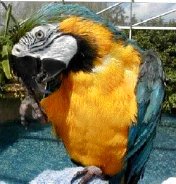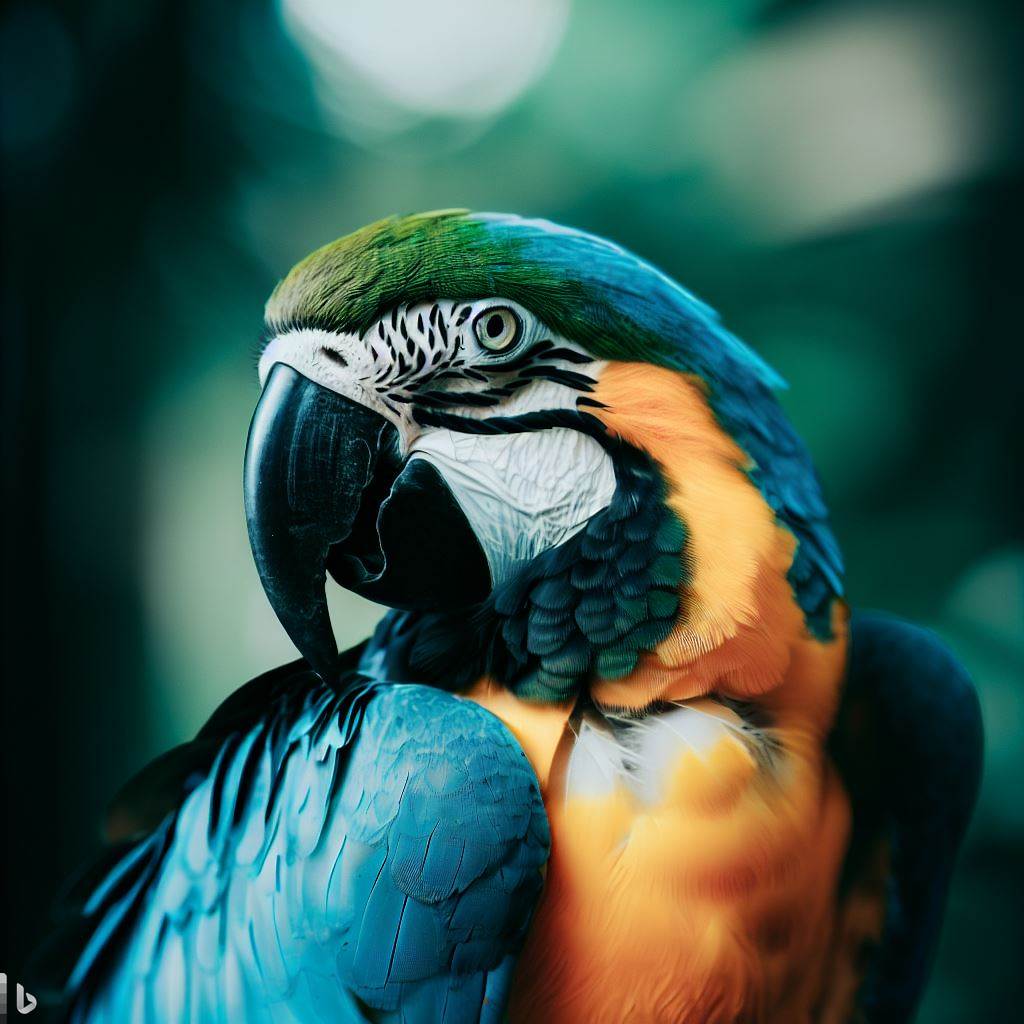
This powder is produced by specialized “powder down feathers” and is a white waxy substance composed of keratin. Powder down forms a water proof barrier for contour feathers. It is spread through the feathers when the bird grooms. The down is composed of very fine particulate matter which becomes airborne very easily and spreads via air currents and air ducts throughout the area.
The powder down can also cause irritation to people with respiratory problems and allergies. (People with allergies may be able to tolerate these birds, but they should be aware of this before acquiring one of them).
In the early stages of pulmonary hypersensitivity syndrome, the macaw may appear normal, but wheeze with excitement. As the condition progresses, dyspnea (difficulty in breathing), a cough and a bluish tinge to the facial skin (cyanosis) develop. Hypoxia or under oxygenation of tissues occurs, which often leads to an increase in the number of circulating red blodd cells (rbc). Polycythemia (increased rbc numbers) will increase the viscosity of the blood so that it does not flow normally. Clinical symptoms and xrays may support the diagnosis, but a lung biopsy is necessary for confirmation.
In order to prevent this, macaws should be housed in well ventilated rooms – without cockatoos, cockatiels or African greys. An air cleaner with a hepa filter is recommended.
Unfortunately, this pulmonary disease is often advanced when owners first notice a problem.
Affected birds should be moved to an environment with adequate ventilation. Certain drugs may provide temporary relief, but there is no cure for “pulmonary hypersensitiviy syndrome”.

